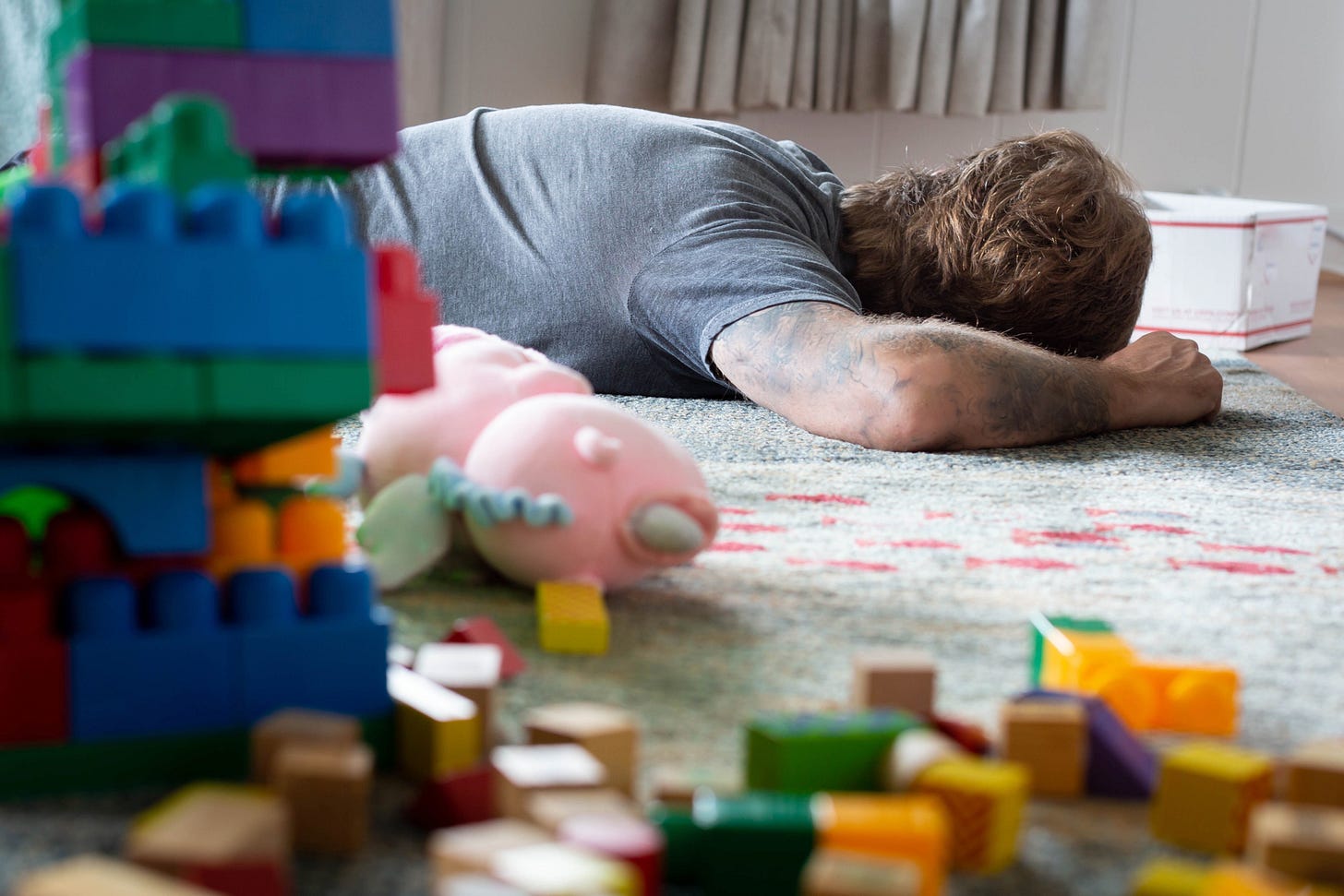"At Least I'm Not as Bad as THAT Dad!"
How men's social comparisons perpetuate the domestic status quo.
Greetings from Toronto! It’s Spring Break for the kids and we drove to Toronto to see the eclipse. We stopped in Niagara Falls on the way yesterday, which was breathtaking (and more than a bit wet and cold!).
Because we’re traveling, today I’m re-sharing a newsletter I sent out nearly two years ago. It’s been shared quite a bit — clearly it resonated! — but since many of you are somewhat new here, I thought I’d send it out again. The research and their implications here are fascinating.
Don’t forget, too, that today is the LAST DAY of my 25% off sale! I am so grateful for all of your support, especially right now as I am working hard on my new book.
Have you ever noticed that men love to hear — and tell — stories about deadbeat dads? The husband who cheats on his wife; the father who doesn’t know how to use a washing machine; the guy who gets mad at his wife if the house isn’t spotless. Their reaction is rarely horror or disgust or “God, what a dick!” — but rather, something along the lines of:
“See, I’m not so bad, right?”
“Look! I’m an angel in comparison.”
“Aren’t you glad you married me?”
I know, I know; #notallmen. But if I had a dime for every time I heard a friend laugh/vent about their husband comparing himself to a bad apple to make himself look good, well, I wouldn’t need any paid subscribers.
Recently, my friends and I were talking about this phenomenon, and I couldn’t help but notice that women rarely make these comparisons. Yes, moms are often judgy about other moms, but we don’t usually judge ourselves against the worst of the worst and say “Hey, at least I’m not that bad!” (If anything, as I’ll discuss in a minute, we do the opposite: We see the Momfluencers on Instagram looking perfect while seemingly doing it all, and we feel like shit in comparison.)
I was fascinated by this discrepancy and wondered if there was any research on the issue. So I reached out to Harvard sociologist Allison Daminger, who studies gender inequality within families and writes the excellent Substack The Daminger Dispatch. “You're definitely identifying something real here,” she told me. “You can come to very different conclusions about your contributions to a household depending on who you are comparing yourself to.” Today I’m going to talk about the research on this phenomenon, which, frankly, blew my mind.
Let me back up for a minute and explain why we make social comparisons. We don’t judge ourselves against others to feel miserable; we do it in part to gather important information. According to a theory in psychology known as Social Comparison Theory, we tend to compare ourselves to other people in areas of life in which we are unsure of how we’re doing. When we don’t know how we measure up in a particular realm, we look at how other people are performing so we can answer the question: Are we doing okay, or do we need to step up?
It stands to reason, then, that who we compare ourselves to makes a huge difference when it comes how we feel about ourselves and how we behave in the future. If I judge my character and choices against a murderer, I’ll feel a whole lot better about myself than if I judge my character and choices against Mother Teresa. Who we choose to compare ourselves to determines if we stick to the status quo (hey, I’m doing fine, no need to work harder) or decide to do better (oh shit, I am really not measuring up).
First, let’s start with who mothers tend to compare themselves to. Although we might not like to admit it, moms often compare themselves to other moms they know. Who’s got a cleaner house? Does my friend read to her kids more often than I do to mine? Mothers are also frequently comparing themselves to ideal versions of mothers on social media, and this is a problem. When we compare our lives to the aspirational, tightly curated and totally unrealistic depiction of life we see on Instagram — mom looks beautiful, the house is spotless, the kids are rosy-cheeked and smiling — we are constantly taking in data that says: You aren’t doing as good of a job as they are. No wonder we all feel like failures.
Research suggests this is exactly what happens.
A recent study found that mothers who tend to make social comparisons are more negatively affected by parenting-related Instagram accounts than moms who don’t make a lot of social comparisons. Social media, the researchers found, gives social-comparison-oriented mothers a “decreased sense of parenting competence.” More than one-third of the moms in the study “mentioned the idealistic picture of parenting presented by InstaParents as something that was affecting them negatively, e.g. “Some people on Instagram make it all seem a little too perfect – then you start doubting yourself.” Sound familiar?
On the other side of the comparison spectrum are dads. In general, there’s much less research on dads than on moms (that’s slowly changing, thank god!), but wow, the research we do have on how dads make social comparisons is …. fascinating.




